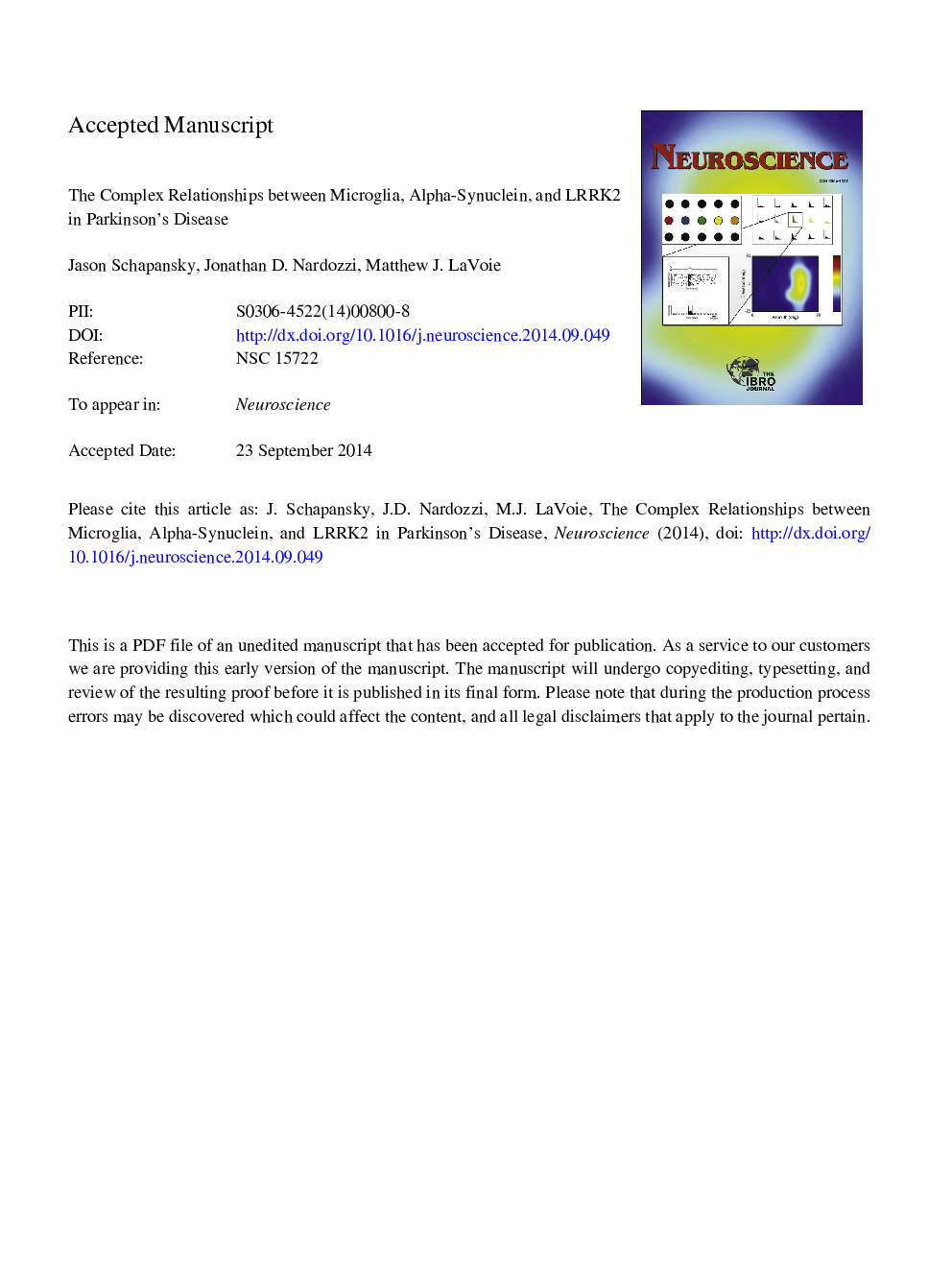| Article ID | Journal | Published Year | Pages | File Type |
|---|---|---|---|---|
| 6272051 | Neuroscience | 2015 | 33 Pages |
Abstract
The proteins alpha-synuclein (αSyn) and leucine rich repeat kinase 2 (LRRK2) are both key players in the pathogenesis of the neurodegenerative disorder Parkinson's disease (PD), but establishing a functional link between the two proteins has proven elusive. Research studies for these two proteins have traditionally and justifiably focused in neuronal cells, but recent studies indicate that each protein could play a greater pathological role elsewhere. αSyn is expressed at high levels within neurons, but they also secrete the protein into the extracellular milieu, where it can have broad ranging effects in the nervous system and relevance to disease etiology. Similarly, low neuronal LRRK2 expression and activity suggests that LRRK2-related functions could be more relevant in cells with higher expression, such as brain-resident microglia. Microglia are monocytic immune cells that protect neurons from noxious stimuli, including pathological αSyn species, and microglial activation is believed to contribute to neuroinflammation and neuronal death in PD. Interestingly, both αSyn and LRRK2 can be linked to microglial function. Secreted αSyn can directly activate microglia, and can be taken up by microglia for clearance, while LRRK2 has been implicated in the intrinsic regulation of microglial activation and of lysosomal degradation processes. Based on these observations, the present review will focus on how PD-associated mutations in LRRK2 could potentially alter microglial biology with respect to neuronally secreted αSyn, resulting in cell dysfunction and neurodegeneration.
Keywords
extracellular-signal-regulated kinase 5TLR4αsynLPSERK5LRRK2Alpha-synucleinALPAutophagyNeuroinflammationinterleukinParkinson’s diseaseNeurodegenerationtumor necrosis factor alphaknock-inCerebral Spinal Fluidubiquitin–proteasome systemSynucleinTNF-αlipopolysaccharideCSFMHCmajor histocompatibility complexMicrogliaknockoutwild-typeleucine rich repeat kinase 2Toll-like receptor 4UPS
Related Topics
Life Sciences
Neuroscience
Neuroscience (General)
Authors
J. Schapansky, J.D. Nardozzi, M.J. LaVoie,
